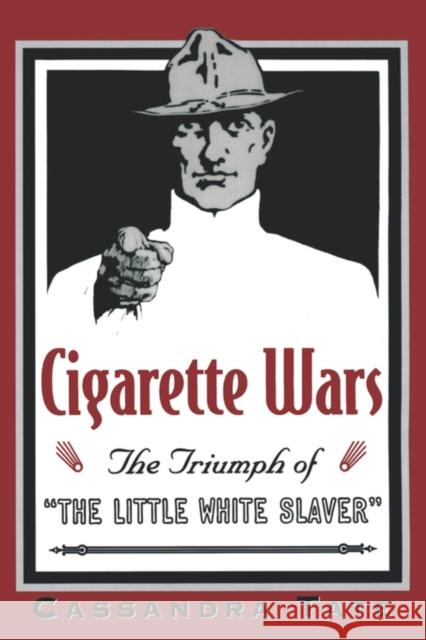Cigarette Wars: The Triumph of the Little White Slaver » książka
topmenu
Cigarette Wars: The Triumph of the Little White Slaver
ISBN-13: 9780195140613 / Angielski / Miękka / 2000 / 224 str.
Cigarette Wars: The Triumph of the Little White Slaver
ISBN-13: 9780195140613 / Angielski / Miękka / 2000 / 224 str.
cena 140,71 zł
(netto: 134,01 VAT: 5%)
Najniższa cena z 30 dni: 135,10 zł
(netto: 134,01 VAT: 5%)
Najniższa cena z 30 dni: 135,10 zł
Termin realizacji zamówienia:
ok. 30 dni roboczych.
ok. 30 dni roboczych.
Darmowa dostawa!
We live in an age when the cigarette industry is under almost constant attack. Few weeks pass without yet another report on the hazards of smoking, or news of another anti-cigarette lawsuit, or more restrictions on cigarette sales, advertising, or use. It's somewhat surprising, then, that very little attention has been given to the fact that America has traveled down this road before.
Until now, that is. As Cassandra Tate reports in this fascinating work of historical scholarship, between 1890 and 1930, fifteen states enacted laws to ban the sale, manufacture, possession, and/or use of cigarettes--and no fewer than twenty-two other states considered such legislation. In presenting the history of America's first conflicts with Big Tobacco, Tate draws on a wide range of newspapers, magazines, trade publications, rare pamphlets, and many other manuscripts culled from archives across the country. Her thorough and meticulously researched volume is also attractively illustrated with numerous photographs, posters, and cartoons from this bygone era. Readers will find in Cigarette Wars an engagingly written and well-told tale of the first anti-cigarette movement, dating from the Victorian Age to the Great Depression, when cigarettes were both legally restricted and socially stigmatized in America. Progressive reformers and religious fundamentalists came together to curb smoking, but their efforts collapsed during World War I, when millions of soldiers took up the habit and cigarettes began to be associated with freedom, modernity, and sophistication. Importantly, Tate also illustrates how supporters of the early anti-cigarette movement articulated virtually every issue that is still being debated about smoking today; theirs was not a failure of determination, she argues in these pages, but of timing. A compelling narrative about several clashing American traditions--old vs. young, rural vs. urban, and the late nineteenth vs. early twentieth centuries--this work will appeal to all who are interested in America's love-hate relationship with what Henry Ford once called "the little white slaver."










